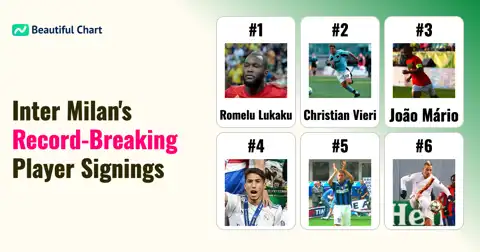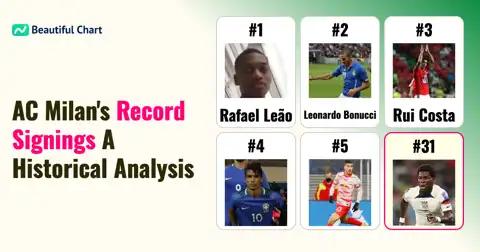This chart shows the all-time hit leaders in Major League Baseball (MLB) as of the end of the 2024 season. Pete Rose leads with 4,256 hits, followed by Ty Cobb and Hank Aaron. While most players in the rankings are from the United States, athletes from countries like Japan, the Dominican Republic, Venezuela, and Cuba are also represented. Plate appearances (PA) are included to provide additional context for each player's career longevity and efficiency.
A hit in baseball is when a batter successfully reaches at least first base after hitting a fair ball, without the benefit of an error or fielder's choice. It's a key measure of a player's batting ability and consistency, and a core statistic in evaluating offensive performance.
The all-time hit leaderboard in MLB is more than a showcase of batting skill—it reflects the durability, consistency, and career longevity of the game's greatest players. Pete Rose stands at the top with 4,256 hits over 15,890 plate appearances, a record that has remained unchallenged for decades. Ty Cobb (4,189 hits) and Hank Aaron (3,771 hits) round out the top three, and their totals represent an era of baseball defined by contact hitting and endurance.
One notable pattern is the dominance of American players in the upper ranks, a reflection of MLB's early history. However, international players have increasingly made their mark. Albert Pujols (Dominican Republic), Miguel Cabrera (Venezuela), Ichiro Suzuki (Japan), Rod Carew (Panama), and Rafael Palmeiro (Cuba) all surpassed 3,000 hits, signaling MLB's growing global reach. Ichiro’s inclusion is especially remarkable given that these totals exclude his prolific career in Japan, highlighting his elite performance strictly within the MLB.
Hit totals are best appreciated alongside plate appearances. For instance, Tony Gwynn tallied 3,141 hits in just 10,232 PAs, underlining his extraordinary contact-hitting ability. Others like Carl Yastrzemski and Rickey Henderson accumulated hits through sheer career longevity, reflecting a different kind of value rooted in consistency and durability.
Era and position also play important roles in interpreting these stats. Early players like Cap Anson and Nap Lajoie competed in a vastly different version of the game. Meanwhile, high-hit totals from defensively demanding positions—such as shortstop or third base—highlight players’ two-way contributions.
This leaderboard is a valuable historical reference that traces the evolution of hitting in MLB. While modern player management and reduced at-bats per season make climbing the list more challenging, future stars may still etch their names among the legends, driven by global talent and advanced training.
| Rank | Name | Indicator | Subindicator |
|---|---|---|---|
1 | 4,256 | 15,890 PA | |
2 | 4,189 | 13,103 PA | |
3 | 3,771 | 13,941 PA | |
4 | 3,630 | 12,721 PA | |
5 | 3,514 | 12,020 PA | |
6 | 3,465 | 12,602 PA | |
7 | 3,420 | 11,766 PA | |
8 | 3,419 | 13,992 PA | |
9 | 3,384 | 13,041 PA | |
10 | 3,319 | 12,167 PA | |
11 | 3,315 | 12,087 PA | |
12 | 3,293 | 12,545 PA | |
13 | 3,255 | 12,817 PA | |
14 | 3,243 | 10,471 PA | |
15 | 3,184 | 12,883 PA | |
16 | 3,174 | 11,796 PA | |
17 | 3,166 | 12,130 PA | |
18 | 3,154 | 11,625 PA | |
19 | 3,152 | 10,767 PA | |
20 | 3,142 | 12,249 PA |





